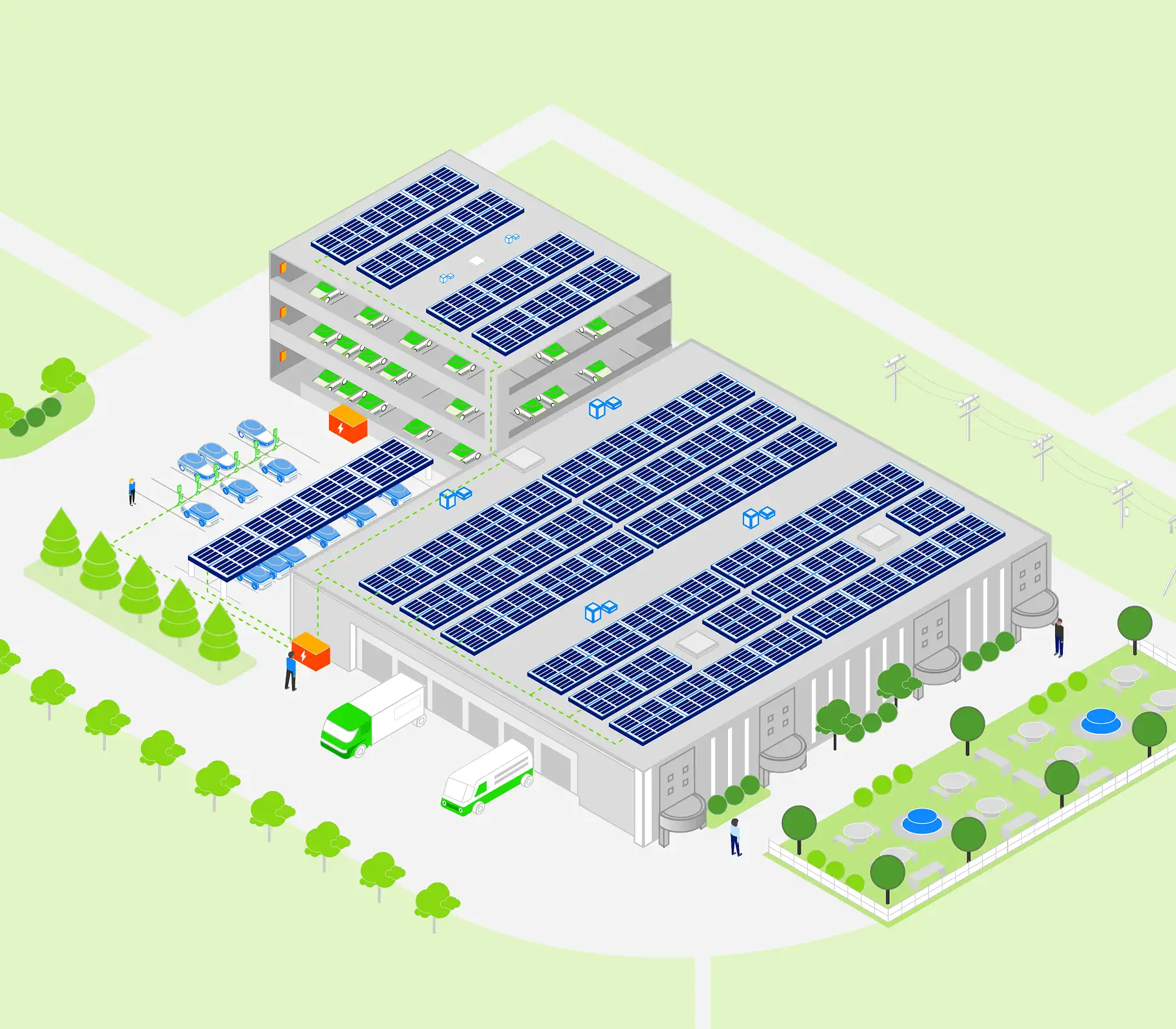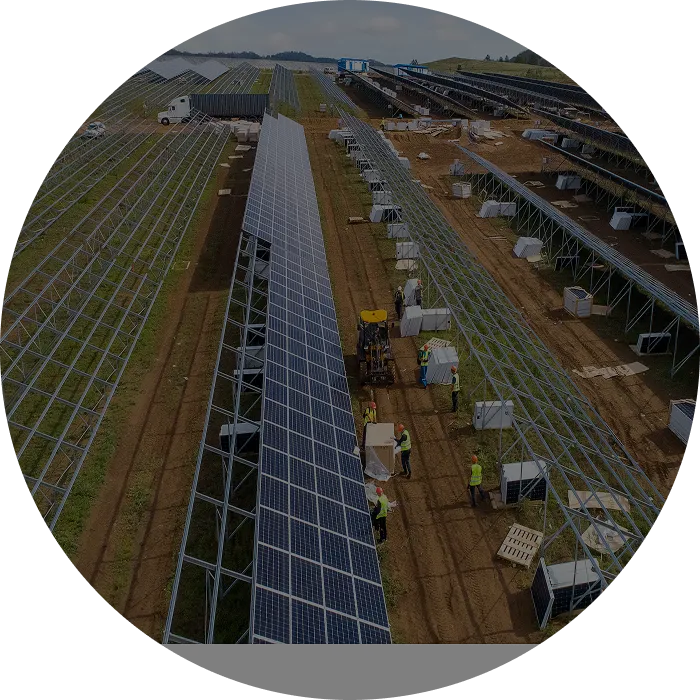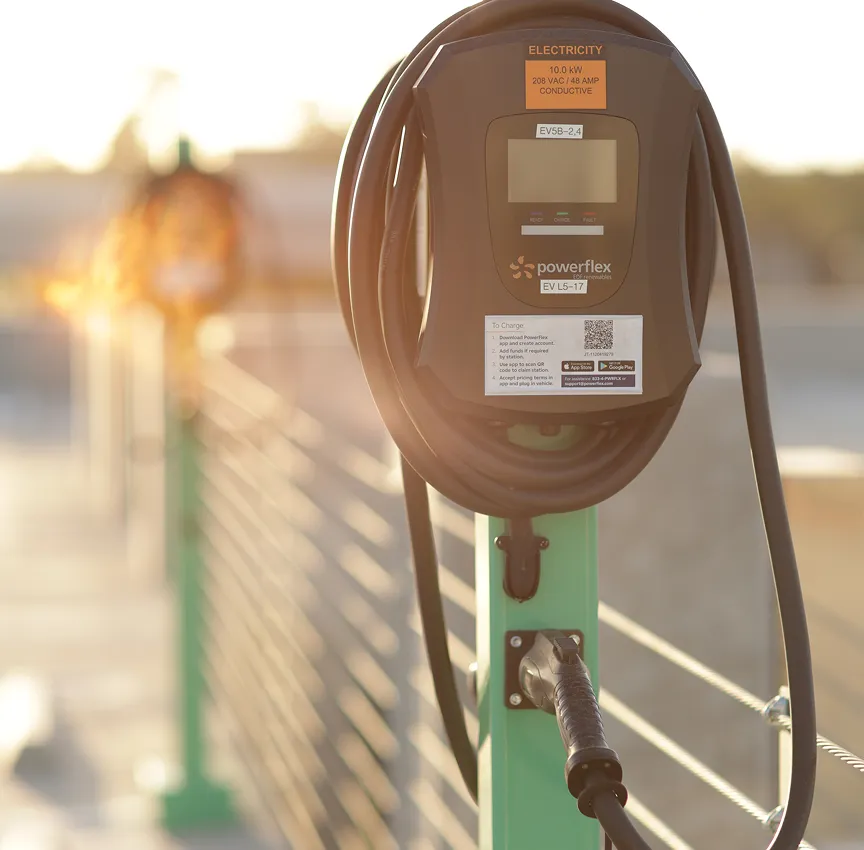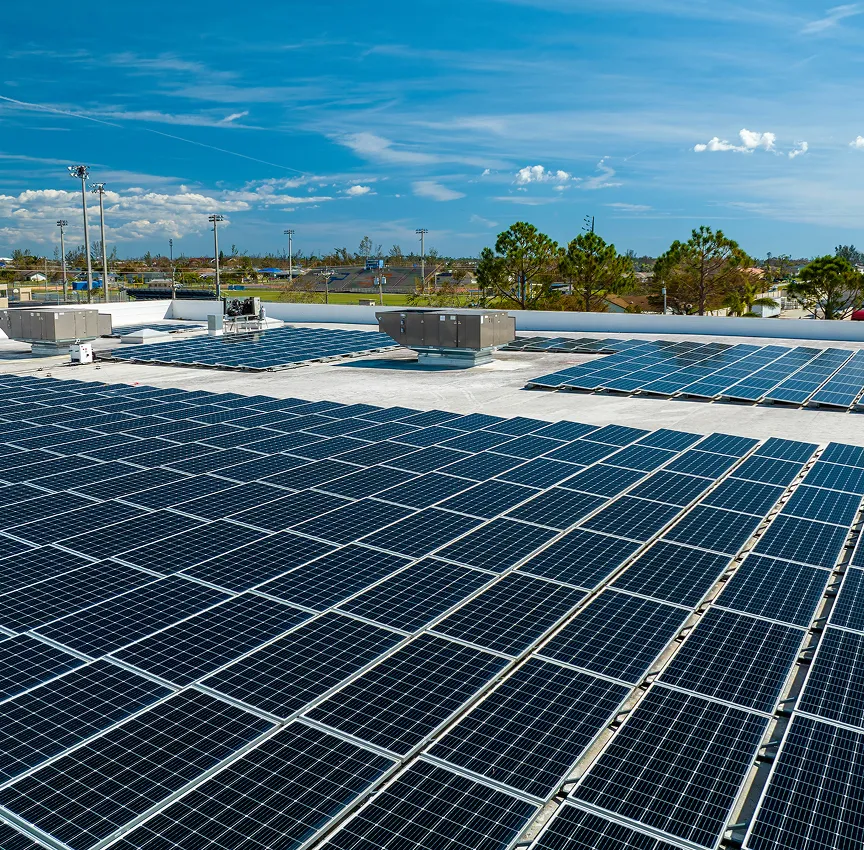2026 State of the Industry Report
Clean Energy Priorities & Funding Strategies in an Uncertain Policy Landscape

1
Grid Instability Stokes Desire for Energy Resilience
Grid instability has shifted organizations' motivations for adopting clean energy
87%
of decision-makers agree breaking away from the grid is a priority
Energy resilience is now the biggest driving force behind clean energy projects
15% of decision-makers ranked it #1, nearly doubling last year’s tally of 8%
2024
8%
2025
15%
2025
15%
2024
8%
The top perceived benefits of clean energy center on reliability and independence:

50%
Energy reliability

43%
Decreased reliance on the grid

42%
Backup power during severe weather


2
Energy Concerns Multiply for Facilities & Fleets
More facility and fleet managers see energy independence as the biggest clean energy benefit
Double-digit year-over-year increases underscore the growing risk energy insecurity presents to vital business operations

55%
of Operations/Facilities Managers


44%
of Fleet Managers


3
ESG & Regulatory Compliance Play Smaller Roles
ESG and regulatory compliance are lesser motivators for clean energy adoption

10%
say net-zero commitments are driving projects

6%
report regulatory compliance is a driver

4
Co-optimization Is Becoming Key
Co-optimization of clean energy assets is an essential strategy
Decision-makers are installing or are planing to install multiple clean energy technologies, laying the groundwork for improved energy independence and resilience

Solar Panels
57%
Already installed
43%
Plan to install in next 5 years
EV Chargers
54%
Already installed
46%
Plan to install in next 5 years
Energy Storage
41%
Already installed
59%
Plan to install in next 5 years
Microgrid
43%
Already installed
56%
Plan to install in next 5 years
Intelligent Energy Management
43%
Already installed
56%
Plan to install in next 5 years

5
Policy Volatility & Budget Cuts Loom Large
But a funding crunch threatens progress . . .
Policy volatility is stalling projects
46%

canceled clean energy projects planned for next year due to changes in government funding
Sustainability is getting a smaller slice of internal budgets
47%

of organizations dedicate 30% or less of its yearly budget to ESG strategy measures
One out of three organizations dedicate just 10% or less of its yearly budget to ESG
2025
2024
33%
11%
1-10%
+22 ppts YoY
8%
13%
11-20%
7%
12%
21-30%

6
Tax Credits Prove to Be an Uncertain Strategy
Organizations are turning to tax credits to offset internal ESG budget cuts
65%
supplement internal dollars with tax credits, nearly double versus last year
However, the One Big Beautiful Bill Act removes key solar and EV charging tax breaks:
Accelerates 30% solar Investment Tax Credit phase-out
Eliminates Alternative Fuel Refueling Property Tax Credit

7
State Incentives & Flexible Financing Forge a Path Forward
State incentives and flexible financing are keys to clean energy expansion

There are hundreds of active incentive programs around the country for commercial solar, battery energy storage, and EV charging systems.
View Available IncentivesFinancing options allow the deployment of cleantech solutions with little or no upfront capital expenditure required:
- Loans
- Leases
- Energy Savings Performance Contracts
- Power Purchase Agreements
- Charging-as-a-Service
